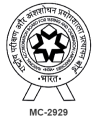Frequently Asked Questions
How do I prepare for thoracic surgery?
Preparing for thoracic surgery includes undergoing any recommended pre-surgical tests,
which may involve blood tests, imaging, and pulmonary function tests. It’s essential to share your
medical history, including any medications, allergies, or recent illnesses, with our surgeons. Additionally, our team will guide you through specific instructions, such as dietary restrictions and any adjustments to medications, to ensure you are ready for surgery.
What should I bring with me to the hospital for thoracic surgery?
Please bring identification card, medical insurance information, a list of your current medications, and comfortable clothing for your stay. If you use assistive devices like glasses or hearing aids, bring those as well. Our nursing staff will provide additional instructions for what to bring and answer any questions you may have before your admission. All prior medications they take routinely
What types of thoracic surgeries are performed at Holy Family Hospital?
We offer a range of thoracic procedures, including lung resections, esophageal surgery, diaphragm, chest - wall, pleuma and minimally invasive options like video-assisted thoracoscopic surgery (VATS), Lung cancer, TB surgery. Each procedure is customized to the patient’s needs, and
our surgeons will explain the most suitable approach based on your diagnosis, overall health, and surgical goals.
What happens during a typical thoracic surgery?
During thoracic surgery, you will receive anesthesia to ensure comfort, and our surgical team will carefully perform the procedure with the goal of addressing your condition while minimizing impact on surrounding tissues. Procedures may vary, but our team will walk you through each step of what to expect in advance so that you feel informed and comfortable.
How long does thoracic surgery usually take?
The length of the surgery depends on the complexity of the procedure. Simple procedures, such as biopsies, may take about one to two hours, while more complex surgeries could last several hours. Our surgeons will provide you with an estimated timeframe based on your specific surgery.
What should I expect during recovery after thoracic surgery?
Recovery after thoracic surgery includes a stay in the hospital to monitor your breathing and ensure comfort. Our team will assist you with pain management, breathing exercises, and other essential post-operative care. Recovery times vary, but we will provide guidance on how to take care
of yourself and monitor progress once you are discharged.
When can I return to normal activities after thoracic surgery?
The timing to resume daily activities varies depending on the procedure and your progress in recovery. Our team will give you personalized advice to help you transition back to your regular routine safely. Patients can be walkable after the next day of surgery.
What are the potential risks associated with thoracic surgery?
Like all surgeries, thoracic procedures have some risks, which may include infection, bleeding, and complications related to anesthesia. Other potential risks are specific to the type of surgery, such as changes in lung function. Our team takes every measure to minimize risks and will
discuss any concerns you may have to ensure you feel confident about your treatment plan. There is a possibility for discharge with chestdrain occasionally.
What are the benefits of undergoing thoracic surgery?
Thoracic surgery can provide significant benefits, including improved lung function, relief from symptoms, and, in many cases, a reduction in the progression of certain conditions. The ultimate goal is to enhance your quality of life and address the underlying health issue. Our doctors
will help you understand how the surgery could benefit you specifically, based on your diagnosis and health goals. These can often be life saving procedures which are performed by a minimally invasive approach to ensure early recovery after surgery.



